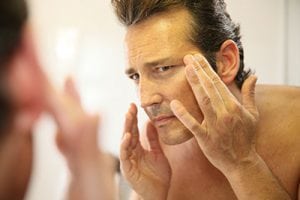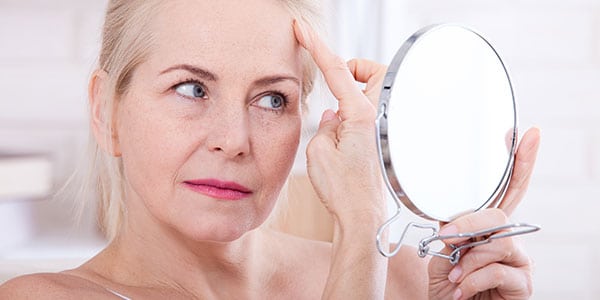The human body is a complex system full of working parts and processes. These parts and processes must work together, so there has to be some sort of communication system in place. This communications system is known as hormones. Hormones carry signals from the endocrine system to the body’s cells that tell them how to function. Hormones are incredibly efficient but not exactly stealthy messengers. The effects of hormonal changes are very obvious, especially the effects on the skin.
Types of Hormones
There are five types of hormones that causes hormonal changes in the body. These are:
-
Androgens
—considered the “male” hormone because men make and use more of it than women. Responsible for testosterone levels.
-
Corticoids
—controls stress levels, body temperature, energy and more.
-
Estrogens
—considered the “female” hormone because women make and use more of it than men. Responsible for many reproductive functions, more in women than men.
-
Progestins
—considered the pregnancy hormone because it preps the female body for pregnancy. It also aids in reproductive functions in both sexes.
-
Thyroids
—a jack-of-all-trades. These hormones support almost every function in the body. Conversely, when they malfunction, they can cause many problems in the body.
Hormones and Your Skin

Estrogen has a different effect on skin from androgens. Estrogen delays the signs of aging in the skin. This is important because the visible signs of aging are more evident in skin than in any other part of the body. Estrogen fights fine lines and wrinkles, helps skin retain moisture and aids skin in keeping a soft, smooth, supple appearance. As women get older, their estrogen levels decline so hormone replacement therapy for estrogen has become a popular way to fight the signs of aging.
Another example of how hormones affect skin can be seen when observing thyroids. A thyroid imbalance can present itself in two ways: Hypothyroidism is under-active thyroids, and hyperthyroidism is over-active thyroids. These imbalances can lead to skin problems such as scaly skin, coarse skin, thin skin, edema and more.
Skin is the largest collection of cells in the human body. It also happens to be the most visible. For these reasons, most people do all they can to maintain healthy skin. It’s important to remember that hormones play a large role in skin health, so keeping hormone levels in check is the best way to keep your skin looking healthy and youthful.





